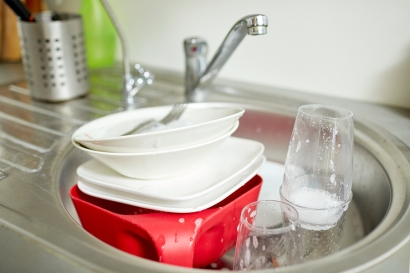Although it is not inherently harmful to consume, hard water can cause a few different kinds of issues for homeowners. The hardness of water has to do with its concentration of calcium and magnesium, and can be treated by water filtration systems. Here is a quick look at the link between calcium and magnesium and hard water.
Evidence and Cause of Hard Water
If you notice that your glasses look cloudier than you think they should when you retrieve them from the dishwasher, you may be dealing with hard water. This type of water contains excessive amounts of minerals like calcium and magnesium, which leads to deposits being left on your dishes and soap scum rings being left in your bathtub. While the presence of these minerals is not dangerous, it can cause issues for you and your family.
Hard Water Disadvantages
Too much dissolved calcium and magnesium in your water can make it difficult to clean your dishes, your clothing, and even your body. Cleaning agents like dish soap, laundry detergent, and shampoo do not readily lather or create suds when combined with hard water; this means that you will have to use more of the cleaning agent to achieve the desired effect. Your dishes and bathtub may also be left with residue from the hard water, which can be unsightly.
Benefits of Installing a Water Softener
Remedying your hard water can be a simple and passive process with the appropriate water filtration system. A water softener can be used to regulate the amount of calcium and magnesium in your water through the process of ion exchange. This can help to ensure that the water flowing through your household appliances and fixtures is softer and ready to interact with cleaning agents.
For more information about the link between calcium and magnesium in hard water, please do not hesitate to call Tri-County Pumps at (888) 890-3957. We are happy to serve Montgomery County with a variety of water quality services. Contact us about our water filtration systems today.


